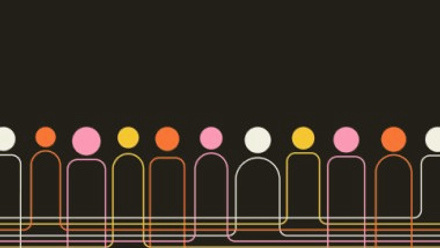How digital solutions can play a role in building inclusion, belonging and diversity in the workplace
The benefits of having a diverse workforce are unquestionable. They cultivate greater innovation, creativity, competition and better decision-making, which makes them 35% more likely to perform better financially than less-diverse counterparts.
But, despite these benefits, many businesses lack diversity, particularly in senior roles. Data collected in the past six months revealed that women led just eight of the top 100 companies in the UK, and only six CEOs of FTSE 100 companies are from an ethnic minority. Additionally, a third of graduates have reported feeling that graduate employment schemes are targeted towards those from wealthier socio-economic backgrounds.
What do businesses currently do to build diverse workforces?
Many businesses explicitly state that they’re an equal opportunity employer and ensure a fair recruitment process by appointing diverse recruitment panels and anonymising CVs.
But recruiting a diverse workforce is not the same as keeping one.
Critically, workplaces that foster a sense of belonging and inclusion through building social connections, trusting relationships and the sharing of personal stories experience greater staff retention and diversity.
However, this is where many businesses in the UK appear to be failing. Research has found that 75% of employees in the UK would hide ‘differences’ in the workplace. And a third of those from ethnic minorities have reported leaving a job because of a lack of flexibility. On first reading, this does not appear to be an issue related to a lack of belonging and inclusion. However, caring responsibilities are typically higher in women and those from ethnic minorities. Consequently, it could be argued that if every employee in the workplace was given a voice, employers would have a better understanding of the different challenges facing them and they would be better able to support them and, in turn, retain them.
How can digital solutions enable every employee to have a voice?
Creating an environment where every employee has a voice and is heard is key to fostering inclusion and diversity. This seems like a straightforward and easy task for businesses. However, in the UK, taking time to connect with colleagues is often viewed as a ‘nice to have,’ with 82% of employees reporting they do not take full lunch breaks and 83% reporting feeling their colleagues are not heard equally.
This is not the case in other countries. In Sweden, the practice of fika is baked into working culture. Fika is a concept that involves taking time over coffee and cake to talk and listen to one another. And many businesses in Sweden, like Volvo and Ikea, mandate company-wide fika breaks and have dedicated fika rooms.
It would be easy to suggest that, starting tomorrow, every business in the UK should add company fika time into their work calendars as a way to increase belonging and inclusion. But this would be unrealistic in view of the fact that many businesses in the UK currently have little to no cultural practice like this.
This is where digital solutions can play a critical role.
While there is no doubt that having open and honest conversations with colleagues is critical to creating an inclusive working environment, it is likely that many of us do not have the skills, guidance or permission to do this.
Fika Mental Fitness uses technology to enhance the mental fitness of organisations so that they become more inclusive. An organisation’s mental fitness relates to their proficiency in seven mental skills; confidence, connection, focus, motivation, positivity, meaning and stress management. And it offers digital courses that build the foundational mental skills (eg confidence and connection) necessary for authentic, vulnerable cross-team relationships to be formed.
Additionally, Fika Mental Fitness uses its technology to improve the inclusivity of team meetings. It initially focuses on this particular business practice as research has shown that this is where inequalities typically play out, with men speaking 92% of meeting time and more than half of women reporting having been spoken over at some point.
A digital table format creates permission, guidance, structure and safety for every team member to talk about a specified topic (eg a work-related setback, a challenging project) for a specified period of time while everyone else listens. The tables can be themed to reflect common workplace challenges to increase attendees’ perceived value of them. But, over time, attendees are encouraged to talk and listen to one another about increasingly personal concepts (eg how attendees could bring more of themselves to work) so that eventually a culture of belonging and inclusion is created.
Inclusion and belonging within the workplace begins with ways of working. But skill development, permission, guidance, structure and safety must be provided. And this is where technology can play a critical role.
Supplied by REBA Associate Member, Fika
Our pioneering approach's proven to prevent mental health decline & increase employee performance.








